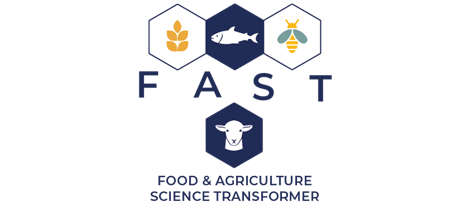Monday 25th May 2020, 11:00am
Interview with Animal Pharm.
John Mackenzie, CEO of Roslin Innovation Centre, says the Food & Agriculture Science Transformer (FAST) programme has identified aquaculture as an industry that could benefit from this new venture.

FAST is looking to build start-ups in the animal health, aquaculture and agritech (AAA) spaces. Roslin will collaborate with Deep Science Ventures (DSV) – a UK-based venture capital firm that specializes in the agriculture, energy and pharmaceutical sectors.
The partners will seek to launch several "high growth technology start-ups" by identifying global commercial and technology opportunities, as well as recruiting and training business founders. The new businesses will be geared towards addressing "neglected areas" in the relevant industries.
John Mackenzie, chief executive of Roslin Innovation Centre, told Animal Pharm that FAST sees aquaculture as an "international growth area" and is a space it is also currently investing in. He claims the program will back firms that specialise in "regenerative aquaculture", by supporting the expansion of environmentally-friendly practices such as minimising the reliance on wild inputs for feed and supporting the further development of probiotics.
"90% of wild stocks are over-fished or at capacity and seafood producers are recognizing the need for a shift to large-scale aquaculture, but we aren't there yet. The right kind of aquaculture not only has the lowest environmental footprint of all animal protein sources, but it can also regenerate surrounding environments if designed with this function in mind.
"Fish feeds and, in particular, probiotics have numerous opportunities to leverage contemporary science and knowledge, especially in microbiome manipulation, which has so far been missed by contemporary players."
John Mackenzie, CEO, Roslin Innovation CentreRoslin itself is committed to conducting research in the field of aquaculture health. A recently conducted study by the Roslin Institute discovered salmon could potentially be bred to be more resistant to sea lice. The research found salmon could be made more resistant to sea lice by using genetic data "in a relatively inexpensive manner". A study earlier this year showed resistance to tilapia lake virus is caused by genetic differences between families of the same fish.
The FAST project is aiming to create the first billion-pound "AAA unicorn company". Mr Mackenzie said this 'unicorn' company will likely operate solely in one of the three opportunity areas identified in the pilot phase of the project. Alongside regenerative aquaculture, these other two opportunity areas include pollinator reinforcement and controlled environment agriculture.
FAST will tap into work being conducted at the University of Edinburgh, as well as seeking businesses located in the wider UK and the rest of the world. The programme will be co-operated from the Roslin Innovation Centre (RIC) at the University of Edinburgh's Easter Bush Campus, as well as at DSV's London headquarters and online.
Newly-created businesses that arise from FAST will be allowed to make use of RIC's office space and laboratory accommodation.
The Roslin Foundation, Edinburgh Innovations and the UK Research and Innovation Biotechnology and Biological Sciences Research Council have provided financial support for the programme.
Interview by Daniel Willis, Animal Pharm published 7 May, 2020